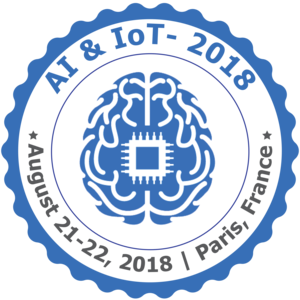
Michaelene Holder March
Director of Governence, NHS, UK
Title: Internet of Things (IoT) Technologies have Revolutionary Impact on Healthcare
Biography
Biography: Michaelene Holder March
Abstract
Technology is swiftly changing the landscape of care and delivery frameworks whereby healthcare organisations can now help patients through the utilisation of Internet of Things (IoT) technologies / systems to improve patients’ health outcomes and experiences by using rich health data and insights to enable a holistic patient diagnosis. Globally healthcare organisations are unconsciously challenged to keep stride with patient behaviour and expectations for digitally mobile and accessible systems of care.
Internet of Things (IoT) technologies has certainly revolutionised the management of patients. This healthcare environment has seen numerous (IoT) applications in healthcare from self-management devices, automated pharmacy dispensers, wearable devices ( e.g. fitness trackers, sleep management) remote monitoring to smart sensors keep track of newborns (paediatric and maternity units) and medical device integration. Internet of Things (IoT) certainly has the prospect of keeping patients away from emergency rooms, wards and outpatients clinics whilst safeguarding clinical safety and doctor’s treatment and care planning. According to the results of the recently launched 2017 Global Customer Experience Benchmarking Report is that 59% of healthcare and pharmaceutical organisations can track customer (read patient) journeys. Just 5% have all their patient contact channels connected (this will increase to 46% within the next two years). The data from IoT intuitively presents an opportunity for healthcare organisations to learn, have real-time insight and use the emerging trends to inform strategic and operational decisions organisational wide whilst attracting investors. However in regards to the management of complex illnesses, Internet of Things (IoT) technologies has stimulated patients to be more active in monitoring their individual health which is of great benefit to the patient family, carers and wider population. The Internet of Things (IoT) Technologies wearable devices which may be worn as a wristband are available to track exercise, sleeping patterns and vital signs such as heart rate, pulse, respirations and blood pressure enabling patients to monitor their own progress or performance, and then transmit their health data back to their healthcare provider for treatment plan and review of care. This is handing patient the keys of “health ownership” and empowering patients to act and take full control of their health whilst healthcare practitioners can monitor conditions and administer appropriate treatment. The consumer market is saturated with consumer tracking devices that also support health and wellbeing example smoking, fertility, blood glucose and weight loss are aiding the global vision to give the public the choice to determine their health outcomes.
There are hurdles for healthcare organisations in regards to the deployment of Internet of Things (IoT) Technologies this includes the lack of interoperability with current patient record electronic system, suppliers accountability for failures, data storage, consent and data sharing, password protections and the management of the multiple connected devices from various suppliers. Other published hurdles are the tremendous quantity of hospital and multiple streams of patient data from various devices and readiness for the hospitals information technology departments to manage data security, compliance with information governance, data regulations and cyber security which are to be risk managed on a daily basis. Despite the hurdles the benefits of fully embracing Internet of Things (IoT) Technologies within healthcare is a welcome advancement in modern healthcare.

